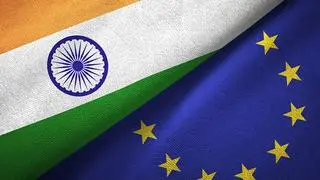Sweden recognises Covishield, the Oxford-AstraZeneca vaccine being manufactured in India by the Serum Institute of India, as a valid vaccine against Covidfor travel to the region as it is certified by the World Health Organisation (WHO), said Swedish Ambassador to India, Klas Molin.
The country will also accept Covaxin, manufactured by Bharat Biotech, as a valid vaccine once the WHO gives it the go-ahead, Molin said in an interview with BusinessLine .
“We believe in following the WHO recommendations and Covishield is definitely recognised. When WHO approves Covaxin and puts it on its list, the same will be true for Covaxin,” said Molin.
Awaits nod for Covaxin
The process of accrediting Covaxin at the WHO is on and the required information being sought by the health body is being submitted.
Sweden, which has a surplus of AstraZeneca vaccines, is ready to share it with other nations, including India, but only through the Covax initiative.
“The Swedish authorities ordered a large number of doses early on, including vaccines manufactured by AstraZeneca. As vaccinations proceeded and it turned out that we had excess capacity, the government decided to redirect a large quantity to the WHO to use within the Covax operation. In other words, it’s not earmarked but rather to be decided by the WHO,” he said.
The Swedish government’s announcement in May this year to share 1 million doses of AstraZeneca vaccines with the Covax facility followed its decision not to vaccinate people under 65 years with AstraZeneca. The country is now in discussions to supply more doses of the vaccines to the WHO.
On the possible relaunch of India-EU Free Trade Agreement, Molin said that Sweden was gratified to see the progress made during the virtual India-EU Summit in May this year.
“The High Level Mechanism created has turned out to be a very useful and constructive tool for moving forward, and we feel that the seriousness of intent is obvious on both sides. There are still hurdles and such an undertaking is not without difficulties. But we firmly believe that it is in mutual interest and will greatly facilitate trade which will benefit people on both sides,” he said.
If the FTA is accompanied by an investment protection agreement, it would be very very positive, he added.
While an investment protection agreement will certainly be welcomed by over 250 Swedish companies operating in India, including household names such as Ikea and H&M, no one is intending to quit in the interim period. “If you ask the companies, they will tell you they would like to see an investment protection agreement. The absence of one doesn’t mean they are leaving India. But naturally, having such an agreement adds security and predictability for FDI,” he said.
On the possible areas of future cooperation, the Ambassador said that sustainable and smart transportation, with a focus on alternative fuels and renewables and electrification of both highways and vehicles, was key. Moving from waste to energy was another promising area for sharing of expertise.
“Today, there are whole burroughs, townships and societies that are self-sufficient. Biogas produced by converting waste is, for example, used in buses taking commuters to school and work. Imagine if we can get whole towns and cities to be like this also in India!,” he said.,” he said.
India and Sweden are talking about such collaborations as part of the Joint Action Plant and Joint Innovation Partnership.
Meets Ministers
The Swedish Ambassador has already had meetings with the newly-appointed Science & Technology Minister, Jitender Singh, and Minister of Communications and Electronics & Information Technology and Railways, Ashwini Vaishnaw.
“I am honoured that they took out time soon after taking office to sit and discuss with me how India and Sweden can co-operate even more closely on innovation, sustainability and creating opportunity and employment for green growth for all,” he added.








Comments
Comments have to be in English, and in full sentences. They cannot be abusive or personal. Please abide by our community guidelines for posting your comments.
We have migrated to a new commenting platform. If you are already a registered user of TheHindu Businessline and logged in, you may continue to engage with our articles. If you do not have an account please register and login to post comments. Users can access their older comments by logging into their accounts on Vuukle.